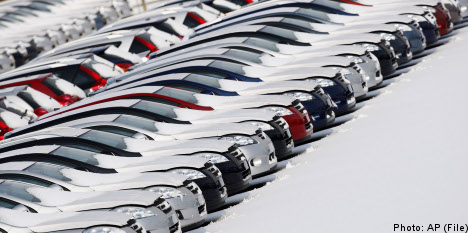“New car registrations increased dramatically in January and confirm the trend that we have seen in recent months with a recovery in the car sector,” said Bertil Moldén at BIL Sweden.
“At the same time we have to bear in mind that January last year was a very weak month affected by the recession as well as the finance crisis.”
Moldén explained in a press release that the boost in car sales showed that the Swedish economy was heading in the right direction.
“Increased car sales boost growth and employment and is positive from both an environmental and road safety perspective as it contributes to a renewal of an ageing Swedish car pool,” he argued.
During January 15,523 new cars were registered, a climb of 37.4 percent on January 2009.
Truck registrations climbed 5 percent over the period to 2,290. Light trucks (up to 3.5 tonnes) increased by 22.7 percent while sales of heavy trucks (above 16 tonnes) continued to fall, down 50.4 percent.
Sales of eco-cars continued to increase, up 50.2 percent in January. This corresponds to 36.2 percent of all new car sales, up from a market share of 33.1 percent in January 2009.



 Please whitelist us to continue reading.
Please whitelist us to continue reading.
Member comments